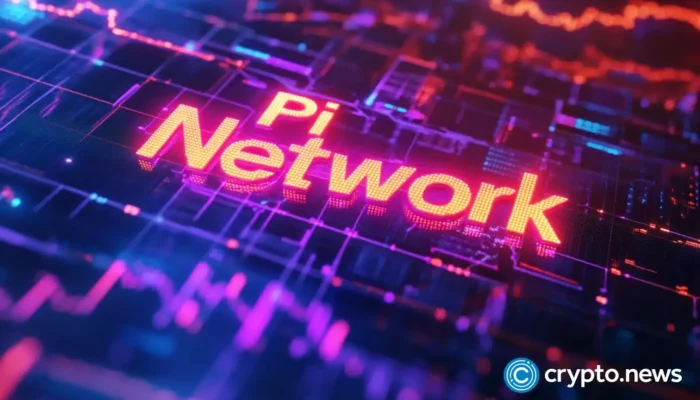Bitcoin Magazine

Prosecution In Samourai Wallet Case Affirms It Did Not Violate The Brady Rule
In a letter to the Southern District of New York (SDNY) filed today, the prosecutors in the Samourai Wallet case stated that they did not withhold exculpatory evidence and petitioned the judge for the case to deny the defense’s request for a hearing to discuss the late disclosure of key information that prosecutors had obtained from FinCEN almost two years ago.
Earlier in the week, the defense stated in a letter that they’d learned that FinCEN had “strongly suggested” that Samourai Wallet was not acting as a money transmitting business due to the noncustodial nature of the product in a discussion between certain FinCEN members (more on these members two sections down) and the prosecutors on August 23, 2023.
This information came to light thanks to a Brady motion that the defense had submitted. (This type of motion is named after the Brady v. Maryland Supreme Court case, which took place in 1963. The case established the Brady rule, which stipulates that exculpatory evidence be provided to the defense so that it can be utilized as a part of due process.)
Given that one of the two charges the Samourai developers are facing is conspiracy to operate an unlicensed money transmitting business, some felt that this new information coming to light could be grounds for dismissing the case.
No Dismissal, No Hearing
However, today’s letter from the prosecutors states that they have no intention of dropping the case, nor do they feel that the hearing requested by the defense is warranted.
“There is no basis for a hearing, nor is there anything to remedy: the disclosure itself shows that the government has not violated Brady,” the prosecutors stated in the letter. “The Government disclosed all known substantive communications between the prosecution team and FinCEN months in advance of pretrial motions and trial.”
The prosecutors added that they plan to proceed with the case, highlighting the second charge: conspiracy to commit money laundering.
“As alleged, Samourai laundered over $100 million dollars of crime proceeds originating from, among other criminal sources: illegal darkweb markets, such as Silk Road and Hydra Market; various wired fraud and computer fraud schemes that deprived victims of funds, including web-server intrusion, a spear phishing scheme, and schemes to defraud multiple decentralized finance protocols; and other illegal activities,” the prosecutors wrote.
Downplaying The Input From FinCEN
Furthermore, the prosecutors claimed that the fact that they only recently disclosed their communications with FinCEN is irrelevant to the case, as much of the charged conduct does not rely on FinCEN regulations.
They also downplayed the importance of what was shared by the FinCEN employees who spoke with the prosecutors: Kevin O’Conner (Chief of FinCEN’s Virtual Assets and Emerging Technology Section in the Enforcement and Compliance Division) and Lorena Valente (an employee of FinCEN’s Policy Division when she spoke with the prosecution).
The prosecutors referred to O’Conner and Valente’s opinions as “individual, informal, and caveated,” adding that they had already provided “substantive email correspondence between the prosecution team and members of FinCEN relating to the August 23, 2023 call.”
They went on to state that “the individual employees of FinCEN were not speaking on behalf of FinCEN, they were not providing FinCEN’s opinion, and they ‘did not have a sense of what FinCEN would decide if this question were presented to their FinCEN policy committee.’”
No Brady Violation
In the final section of the letter, the prosecutors asserted that they had not violated legal norms in not offering certain details of their August 23, 2023 call with FinCEN until this point in the pre-trial process.
“The record shows that there was no Brady violation in this case,” wrote the prosecutors.
“The government disclosed the contents of this informal conversation to the defense in advance of pretrial motions, and approximately seven months in advance of trial in response to a request for that information,” they added. “Nothing more is required.”
Lastly, according to a Second Circuit ruling, which the prosecutors also mentioned in the letter, as long as the defense possesses Brady evidence in time for its effective use, the government has not deprived the defense of due process.
What Comes Next?
It’s unclear as to when Judge Berman will respond to today’s letter from the prosecution.
The defense’s opening motion was originally scheduled for today but has been pushed back two weeks. One week after the opening motion, the prosecution will respond to the defense’s opening motion.
As of the last pre-trial hearing, the prosecution is scheduled to provide its expert disclosure on July 15, 2025, and the defense is expected to provide theirs by August 8, 2025.
The trial is scheduled to begin on November 3, 2025.
If you’d like to donate to the defense fund for the Samourai developers, you can do so via the P2P Rights Fund.
This post Prosecution In Samourai Wallet Case Affirms It Did Not Violate The Brady Rule first appeared on Bitcoin Magazine and is written by Frank Corva.


